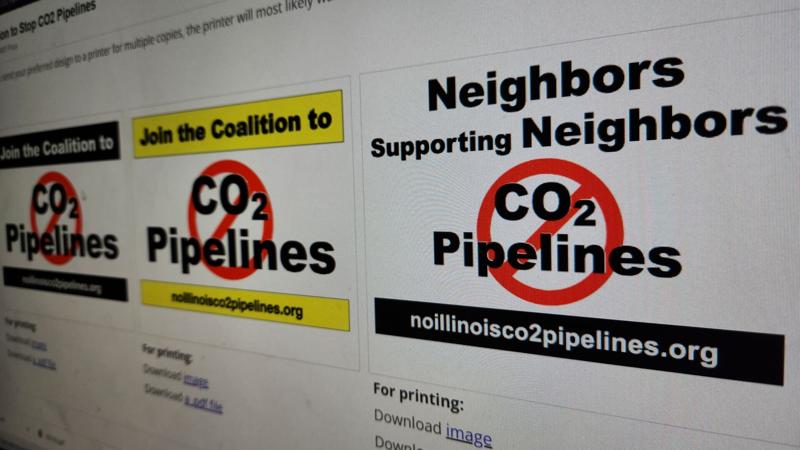(The Center Square) – Illinois farmers and landowners are concerned that Illinois law makes it too easy for developers to use eminent domain to seize land for carbon dioxide pipeline projects.
Bill Bodine, the Illinois Farm Bureau’s director of business and regulatory affairs, said preventing the use of eminent domain for CO2 pipeline rights of way and storage areas is a top priority for IFB members in the current state legislative session.
“As an organization, we are advocating for legislation that would prohibit the use of eminent domain for carbon dioxide pipelines,” Bodine said.
In 2011, the legislature passed the Carbon Dioxide Sequestration Act. It grants CO2 pipeline developers eminent domain authority. Illinois Farm Bureau members want to see that power taken away from developers.
“We will be supporting legislation that removes eminent domain authority for carbon dioxide pipelines,” Bodine said.
IFB members support requiring evidence of willing agreements between landowners and developers before pipeline projects are approved.
Ethanol plants use fermented corn to produce fuel. CO2, a greenhouse gas that contributes to global warming, is a byproduct of the ethanol production process. To prevent CO2 emissions in the atmosphere, CO2 is captured and compressed into a liquid hazardous substance. The liquid is then transported by pipeline to a location where it can be sequestered underground.
Illinois landowners want regulators to require proof of progress being made on willing agreements between landowners and developers before a pipeline project can be approved, Bodine said.
Currently, there are 5,000 miles of CO2 pipelines operating in the United States.
In the wake of a pipeline rupture in 2020 in Mississippi that sent 46 people to the hospital, federal regulators at the Hazardous Materials Safety Administration are in the process of evaluating and updating safety rules and standards for the transport of liquid CO2. Their report will be published sometime this year.
In December, IFB members listed some safety regulations that they would support. They include adding an odor to the CO2 so that its presence would be known in case of a leak. They would like to see enhanced leak detection with automatic shut-off and notification of emergency services. They also called for training and equipment donations for emergency responders in areas that are impacted by CO2 pipeline projects.







